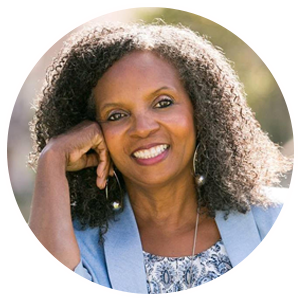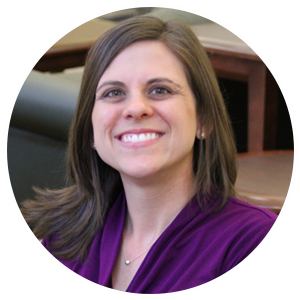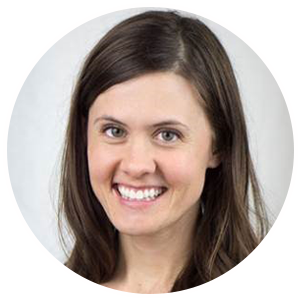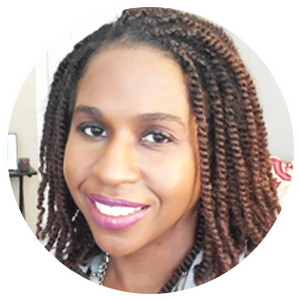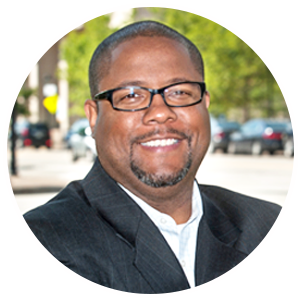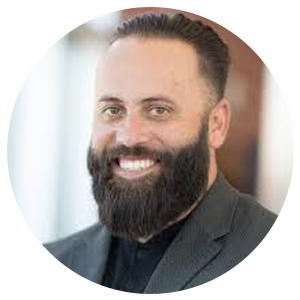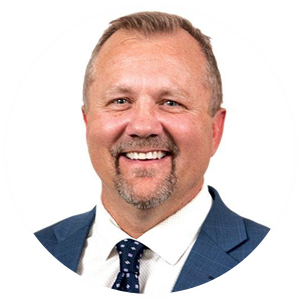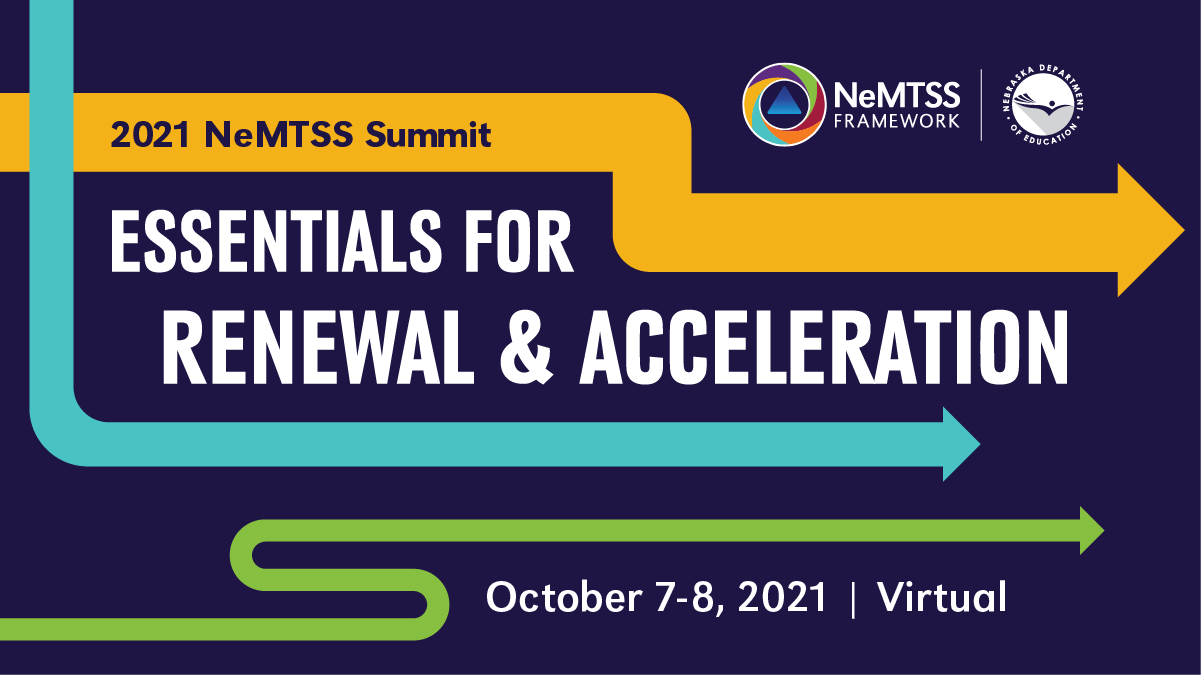
Essentials for Renewal and Acceleration
The theme of this year’s all-virtual Nebraska MTSS Summit is “Essentials for Renewal and Acceleration.”
There are many uncertainties as students and teachers return to classrooms:
- How will educators renew their past learning to connect it with the current system?
- How will educators accelerate unfinished teaching and learning from the past year to ensure all students have the opportunity to meet grade-level expectations and develop a growth mindset for future learning?
- And, key to all, how can MTSS support this renewal and acceleration?
The 2021 NeMTSS summit will guide participants as they grapple with these and other concerns on their way to a successful 2021-22 school year.
Registration is closed.
Registered participants
You will receive an email on Oct. 6 that includes a link to the Virtual Participant Page. This private page will give you access to the live Zoom presentations and other important resources. Please refer to this email to begin your summit experience. If you have questions, please email mtss@unl.edu.
Virtual Summit Schedule
All times listed are Central Daylight Time.
Thursday, October 7th
8:45-9:00 a.m. | Welcome & Opening Session
When Coffee Isn't Enough
Self-care is how you take your power back! This powerful presentation provides attendees some readily available strategies to promote positive mental wellness in all areas of life. Be prepared to leave engaged and renewed to give not only the best of you to others, but to yourself!
Jen McNally
Director of Mental Health and Wellness and Psychotherapist, Educational Service Unit 5
9:00-10:15 a.m. | Keynote
Re-Imagining Equity Centered Schools & Education
Although it is incumbent upon schools to educate all students, they may not be adequately equipped to address the unique needs of minoritized students as evidenced by persistent educational disparities. These educational disparities are well documented in the literature and government reports indicating that students from racial and ethnic minoritized groups, sexual minoritized students, and disabled students experience differences in disciplinary action, achievement outcomes, graduation rates, access to gifted education, and other educational opportunities, and have more negative perceptions of school climate. The COVID-19 pandemic has highlighted the gross inequities in school systems that led to these disparities. With the return to full-time in-person learning, this is the perfect opportunity for schools to re-examine their practices, focus on equity and create learning environments conducive to ALL students’ success.
Celeste Malone, Ph.D.
Associate Professor & Coordinator, Howard University
10:30-11:30 a.m. | Breakout Session #1
Breakout Session #1 offers two concurrent presentations. Please select one to attend virtually.
Elevate Student Engagement in the Inclusive Classroom
Student engagement can increase successful inclusive practices and is a catalyst for positive learning outcomes for diverse students. Reimagine your classroom by exploring dynamic management strategies that encourage students to listen, participate and be fully involved. The foundation for student engagement involves building a community of learners that supports the pillars of engagement: effective classroom management, collaboration in flexible groups, and developing questioning and discussion skills. Join Susan Hentz to explore practical, innovative and highly effective strategies to empower all learners to become active participants. Take away information to bolster current student engagement inclusive practices and enhance classroom energy.
Susan Hentz
Educational Consultant
The Surprising Importance of Early Math
Join Douglas Clements to learn surprising research findings about early math, including its predictive power, children’s and educators’ understanding of that potential, and the need for approaches that also contribute to literacy, cognitive and social-emotional skills. Also surprising is the amount we know about effective and equitable teaching using research-based learning trajectories.
Doug Clements
Distinguished University Professor & Kennedy Endowed Chair in Early Childhood, University of Denver
11:45 a.m.-1:00 p.m. | Lunch & Keynote
Psychological and Mental Health as Curriculum Sites: Pressing Toward Justice and Equity
Understanding the psychological, emotional and mental health needs of students and educators is essential to building school communities of success, particularly as we work through the COVID-19 pandemic. How do we build mindsets and practices that support safety and mental health in our schools and communities? Centering equity, Dr. H. Richard Milner’s keynote presentation will focus on helping participants build tools to identify and cultivate positive mental health among students and educators alike. Racial justice issues will be discussed to support psychological, emotional and mental health among students, educators and communities. Particular attention will be on opportunity-centered practices, which affect our experiences inside and outside of school.
H. Richard Milner IV, Ph.D.
Cornelius Vanderbilt Chair of Education & Professor of Education, Vanderbilt University
1:15-2:15 p.m. | Breakout Session #2
Breakout Session #2 offers two concurrent presentations. Please select one to attend virtually.
Realizing Number Sense & Reasoning Through MTSS in Grades 3-8
Join John SanGiovanni to examine how teachers can leverage strategies and approaches to number sense and reasoning through a Multi-tiered System of Support (MTSS). This breakout will provide teachers with opportunities to think about how to differentiate the work, scaffold it and enhance student engagement to maximize the effects. Participants will take time to explore and create some tools to use with their students the following week.
John SanGiovanni
Coordinator of Mathematics, Howard County, MD
Transforming Literacy Instruction in Grades K-2
An effective universal core is at the heart of a Multi-tiered System of Support (MTSS). A driving principle of MTSS is ensuring that best practices and research inform instruction at every level, beginning with the universal core. In this session, Brittney Bills will share how her district shifted reading instruction to align with the Science of Reading in grades K-2, including how the district leveraged high-quality instructional materials and professional development to make the shift. Participants will also learn how her district continually uses data to inform the health of core instruction and continuous improvement efforts in K-2 curriculum, instruction and assessment.
Brittney Bills
Curriculum Coordinator, Grand Island Public Schools
2:30-3:30 p.m. | Breakout Session #3
Breakout Session #3 offers two concurrent presentations. Please select one to attend virtually.
Implementing the 3 Tiers of MTSS in Secondary Schools
Although the structure of school may vary, the foundations of learning remain the same. During this session, participants will review basic elements of the three Tiers of a Multi-tiered System of Support (MTSS). Join Bob Sonju to explore critical elements of Tier 1 (specifically the need for shared clarity on what all students need to know), strategies for developing targeted Tier 2 support and elements of Tier 3. Participants will leave with increased knowledge and practical strategies to implement in their classrooms and schools.
Bob Sonju
Educational Consultant, Author and Practitioner
Writing into Literacy: Scaffolding Students’ Writing in Pre-K and K
Join Sonia Cabell and Stephanie Copp to discuss why early writing is important, how it develops, and how preschool and kindergarten teachers can support young children’s written efforts to help them strengthen their literacy skills. Emphasizing writing during the early years has the potential to accelerate children’s literacy learning, particularly with individualized support to help them understand how print works and grasp the alphabetic principle.
Sonia Cabell
Assistant Professor, Florida State University
Stefanie Copp
Assistant Professor & Director of the Master of Education in Reading Program, University of Lynchburg
Friday, October 8th
8:00-9:15 a.m. | Interactive Workshop #1
The Opportunity: Creating a Culture of Achievement
What does it feel like to walk into your school? Is it a welcoming place, where everyone feels valued? Most school improvement efforts focus on academic goals, but what can make or break your learning community are often the intangibles — the relationships and connections that make up its culture. Authors Fisher, Frey and Pumpian believe no school improvement effort will be effective unless school culture is addressed. They identify five pillars that are critical to building a culture of achievement: Welcome; Do No Harm; Choice Words; It’s Never Too Late to Learn and Best School in the Universe. Drawing on years of experience in the classroom and the school building as an administrator, Dr. Dominique Smith will describe how these pillars support good teaching and learning in this workshop-style session.
Dominique Smith, Ed.D.
Chief of Educational Services, Health Sciences High & Middle College, San Diego CA
9:30-10:45 a.m. | Interactive Workshop #2
Ensuring Equitable Practices for ALL Children: The Intersection of Race, Ability & Language Equity
Join Rosemarie Allen to discuss key social justice and equity issues impacting how we lead, serve and interact with others. Participants will explore implicit bias and how it impacts children based on race, ability and language. The concept of learning loss versus learning gains will also be presented. Anti-bias/anti-racist strategies will be offered to engage with families in culturally responsive ways.
Rosemarie Allen
President and CEO, Center for Equity and Excellence
11:00 a.m.-12:15 p.m. | Interactive Workshop #3
LEADING CHANGE
Change happens. But how do you get the changes you WANT, and how do you get the changes to ACTUALLY happen? Join Chad Dumas to explore assumptions of change and implementation, evidence-based practices for successful change and engage in dialogue with other educational leaders who are implementing change. There has never been a more urgent opportunity to engage in changes that meet the needs of students. To make these changes, however, we need to be smart about it. Otherwise, we’ll end up having failed attempt after failed attempt at change. This breakout will provide participants an opportunity to discover specific tools (e.g., Change Theories, IC Maps, Stages of Concern and Levels of Implementation) and plan next steps to ensure renewal and accelerate student learning.
Chad Dumas
Educational Consultant, Author, Trainer and Collaborator, Next Learning Solutions, LLC
12:30-1:45 p.m. | Lunch & Closing Engagement Session
A Roadmap for Renewal: Leveraging a Data-Driven Approach to MTSS to Accelerate Growth for All Students
In the wake of last year’s unique challenges, Nebraska educators are working tirelessly to meet students’ needs and focusing on accelerating the learning and growth of each student. By leveraging data within a Multi-tiered System of Support (MTSS) framework, educators can have a clear roadmap for renewal for deeply understanding students’ current academic and social-emotional behavior (SEB) needs — charting a course for accelerating growth through targeted instruction and intervention. Learn how to use a data-driven approach to move new learning forward, increase effectiveness and provide much-needed relief to teachers. Join Jaime Harris as she unpacks specific strategies for taking a data-driven approach to MTSS that can help all students move forward.
Jaime Harris, Ed.S., NCSP
School Psychologist, Illuminate Education
Speakers
Rosemarie Allen
Rosemarie Allen, Ed.D., is an associate professor in the School of Education at Metropolitan State University of Denver. Her classes focus on ensuring teachers are aware of how issues of equity, privilege and power impact teaching practices. Allen has served in directorship roles with the Colorado Department of Human Services, where she was responsible for the state’s child care licensing program, the federal child care assistance program, the redesign of the state’s quality rating and improvement system, the implementation of the state’s professional development plan, and assisted in the creation of Colorado’s early learning guidelines.

Brittney Bills
Brittney Bills, Ed.D., is district coordinator for Grand Island Public Schools, where she coordinates the English Language Arts curriculum for grades K-5 and MTSS Academics for Pre-K-12. She previously served as a school psychologist in Iowa for six years. Dr. Bills is also a Language Essentials for Teachers of Reading and Spelling (LETRS®) facilitator and adjunct professor for Doane University. She also founded Nebraska’s “Science of Reading – What I Should Have Learned in College” Facebook Learning Community.
Sonia Cabell
Sonia Cabell, Ph.D., is an assistant professor in the School of Teacher Education and the Florida Center for Reading Research at Florida State University. She previously worked as a second-grade teacher and literacy coach. Dr. Cabell’s research focuses on early literacy, with a particular interest in preventing reading difficulties among children living in poverty. She has authored over 50 publications and has served as principal investigator or co-principal investigator on grant-funded projects totaling approximately $6 million dollars.
Douglas Clements
Douglas Clements, Ph.D., is a Distinguished University Professor and Kennedy Endowed Chair in Early Childhood at the University of Denver. Focusing on early education, especially mathematics education and educational technology, he has published over 166 refereed research studies, 27 books, 100 chapters and 300 additional works, and has directed more than 38 funded projects. Clements’ contributions have led to the development of new mathematics curricula, software, teaching approaches, teacher training initiatives and models of “scaling up” interventions, including the widely used professional development resource, the “Learning and Teaching with Learning Trajectories” tool. He has served on the U.S. President’s National Mathematics Advisory Panel, the Common Core State Standards committee and the National Research Council’s Committee on Early Mathematics, and is a co-author of its reports.
Stefanie Copp
Stefanie Copp, Ed.D., is an assistant professor and director of the Master of Education in Reading program at the University of Lynchburg in Virginia where she holds the Elizabeth M. Forsyth Professorship. She has prior experience as an elementary school teacher, reading specialist and Title III coordinator. Her research interests include language and literacy practices in early childhood settings and promoting reflective practice in teacher education.
Chad Dumas
Chad Dumas, Ed.D., is an international educational consultant, presenter and award-winning researcher whose primary focus is collaborating to develop capacity for continuous improvement. With over two decades of successful leadership experience, Dumas has led significant improvements for both students and staff. He shares his research and knowledge in his new books, “Let’s Put the C in PLC” and “An Action Guide to Put the C in PLC,” and through consulting that includes research, stories, hands-on tools, useful knowledge and practical skills.
Jaime Harris, Ed.S., NCSP
Jaime Harris, Ed.S., NCSP, is a school psychologist with more than 16 years of experience supporting the needs of students, parents and educators, and helping to build multi-tiered systems of support for students, with a particular interest in social-emotional learning and mental health. She was a national nominee for School Psychologist of the Year in 2014 and was awarded the Wisconsin School Psychologist of the Year in 2014. Harris co-founded eduCLIMBER, an award-winning MTSS data collaboration/visualization tool, and serves as vice president of eduCLIMBER Engagement at Illuminate Education, where she consults and trains districts across the U.S. to build capacity in their understanding of MTSS through practical data applications.
Susan Hentz
Susan Hentz is an enthusiastic and talented presenter with more than 30 years of experience as an educator, author, speaker, coach and education consultant. She works nationally with co-teachers, instructional coaches, educators, paraprofessionals and administrators to implement processes to increase their collaborative efforts to improve student achievement. Her professional development and coaching for sustaining improvement provides her with the opportunity to impact positive outcomes for not only students, but also administrators and teachers. Hentz is author of several publications, including “Engaging Students in Every Classroom ASCD Quick Reference Guide,” “Co-Teaching Essentials and Communication Strategies for Successful Co-Teaching ASCD Quick Reference Guide,” “Collaborate Smart: Practical Strategies and Tools for Educators” and “Teach Smart: Practical Strategies and Tools for Educators.”
Celeste Malone, Ph.D.
Celeste Malone, Ph.D., is an associate professor and coordinator of the school psychology program at Howard University. She holds a master’s degree in school counseling from Johns Hopkins University, a doctorate in school psychology from Temple University, and completed a postdoctoral fellowship in child clinical and pediatric psychology at the Johns Hopkins University School of Medicine. Dr. Malone’s research focuses on multicultural and diversity issues embedded in the training and practice of school psychology. Specifically, her work addresses the need to develop multicultural competence through education and training, diversify the school psychology profession, and strengthen the relationship between culturally responsive practice and PK-12 student outcomes. Dr. Malone serves on the National Association of School Psychologists (NASP) Board of Directors as the strategic liaison for the social justice strategic goal and is an elected member of the American Psychological Association Board of Educational Affairs. Dr. Malone was recently elected NASP President-Elect and will serve as the 2022-2023 NASP President. Notably, she is the second person of color to ever serve in this role.
Jen McNally
Jen McNally, LIMHP, CCTP-II, is a director of mental health and wellness, psychotherapist and a national speaker who has dedicated her career to helping empower others. Her work emphasizes the importance of maintaining productive mental health holistically, both inside and out of the workplace. She consults nationally by helping private and public institutions implement effective strategies to promote engagement in the workplace and minimize professional burnout. She has been providing mental health services, psychoeducation, and administration for nearly 20 years to children and families in a variety of settings, including residential treatment facilities, outpatient treatment and schools. Having previously served on Nebraska’s Children’s Commission (LB821), Jen was appointed as Nebraska’s Psychotropic Medication Committee’s chairperson. She currently works as a director of mental health and wellness, employing trauma-focused cognitive-behavioral therapy (TF-CBT) and CBT, among other modalities. She also provides training for school districts on suicide awareness as a QPR Institute instructor. Jen presents across the country on trauma-informed care, mental wellness, self-care strategies, and empowerment for public and private institutions.
H. Richard Milner IV, Ph.D.
H. Richard Milner IV, Ph.D., is Cornelius Vanderbilt Chair of Education and Professor of Education in the Department of Teaching and Learning at Peabody College of Education and Human Development at Vanderbilt University. Dr. Milner holds a master’s degree in English education from South Carolina State University, and a master’s degree and doctorate in educational policy and leadership from The Ohio State University. His research, teaching and policy interests concern urban education, teacher education, African American literature and social context in education. Centering on equity and diversity, his research examines practices and policies that support teacher effectiveness in urban schools. Dr. Milner is president-elect of the American Educational Research Association (AERA), the largest educational research organization in the world. He is also an AERA Fellow and an elected member of the National Academy of Education. Dr. Milner’s work has appeared in numerous journals and he has published seven books, including, “Start Where You Are But Don’t Stay There: Understanding Diversity, Opportunity Gaps, and Teaching in Today’s Classrooms” (Harvard Education Press, 2010 and 2020, Second Edition), “Rac(e)ing to Class: Confronting Poverty and Race in Schools and Classrooms” (Harvard Education Press, 2015) and “These Kids Are Out of Control: Why We Must Reimagine Classroom Management for Equity” (Corwin Press, 2018).

John SanGiovanni
John SanGiovanni, M. Ed., is a nationally recognized leader in mathematics education. He serves as elementary mathematics coordinator for the Howard County Public School System in Maryland, where he leads design and development of mathematics curriculum, digital learning, assessment and professional learning. SanGiovanni also works as a graduate program coordinator for mathematics leadership at McDaniel College in Maryland. He has authored more than two dozen books and is a national consultant for curriculum development and professional learning. SanGiovanni is active in professional organizations, currently on the Board of Directors for the National Council of Teachers of Mathematics.
Dominique Smith, Ed.D.
Dominique Smith, Ed.D., is chief of educational services and teacher support at Health Sciences High and Middle College in San Diego, Calif. He is passionate about creating school cultures that honor students and build their confidence and competence. Dr. Smith’s research and instruction focus on restorative practices, classroom management, growth mindset and the culture of achievement. In addition to his school leadership responsibilities, Smith provides professional learning to K–12 teachers on many topics that address classroom and school climate and organization. Dr. Smith holds a doctorate in educational leadership from San Diego State University with a focus on equity and a master’s degree in social work from the University of Southern California. He also holds credentials from San Diego State University in administrative services, child welfare, PPS and attendance, and was awarded the 2014 National School Safety Award from the School Safety Advocacy Council. His publications include, “All Learning Is Social and Emotional: Helping Students Develop Essential Skills for the Classroom and Beyond” (ASCD, 2018), “Building Equity: Policies and Practices to Empower All Learners” (ASCD, 2017), and “Better Than Carrots or Sticks: Restorative Practices for Positive Classroom Management” (ASCD, 2014). Dr. Smith has contributed numerous articles for the Association for Supervision and Curriculum Development’s Educational Leadership® magazine, including “Tear Down Your Behavior Chart!” He delivered a 2018 TED Talk about building relationships between students and teachers.
Bob Sonju
Bob Sonju is an award-winning educational leader and consultant recognized for his energetic commitment to building effective teams, developing RTI structures that support teachers and students, and creating effective school cultures committed to student learning. He is currently executive director of learning and development for Washington County (Utah) School District and a former adjunct professor of education at Dixie State University. Sonju was formerly the principal of the nationally recognized Fossil Ridge Intermediate School and also served as a high school administrator and special education teacher.


